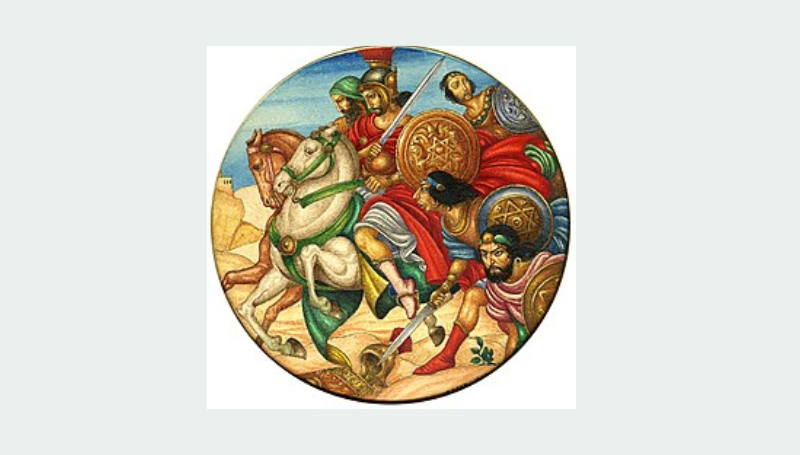Meir Y. Soloveichik
Commentary Magazine, October 2023
“But that was not all that Yadin found. The cavern contained letters from Bar Kochba himself, including one written in advance of the Sukkot holiday, referencing the ritual of waving a lulav, a palm frond:”
Striking archeological discoveries are a constant in Israel, but they can still occasionally inspire wonder. That is the case with the uncovering of a weapons cache from the second century, placed in the Judean desert by Jewish soldiers under the command of Simon bar Kosiba, better known as Bar Kochba, or “son of the star.” He led a rebellion against the Roman emperor Hadrian in the 130s C.E. The Jerusalem Post reports:
An ancient cache of Roman weaponry including four spatha swords and a javelin head was found in a hidden chamber inside a cave at Israel’s Ein Gedi Nature Reserve, in the Judean desert…. “To find one sword like this is rare, so four? It’s a dream come true,” the researchers noted. “We couldn’t believe our eyes.”
The weapons cache was most likely hidden by Jewish rebels some 1,900 years ago, the authority said, after being seized from Roman forces. One of the IAA staff said it was possible that they would detect DNA on the swords that would provide even more incredible details.
It is indeed incredible, but it must be said it is not at all the most incredible discovery from the Bar Kochba period; or, rather, that these Roman swords can be truly appreciated only when considered in tandem with a very different find made in Israel many decades ago.
Let us set the historical stage. The emperor Hadrian reigned around half a century after the Second Temple was destroyed. While Jerusalem had lain in ruins for decades, it was still known as a Jewish city. Hadrian sought to transform it into a Roman one, Aelia Capitolina, with a center of pagan worship where the Temple had once resplendently stood, from which Jews would be forever banned. This is why the Talmud reserves a hatred for Hadrian that it did not even express toward his predecessors Titus and Vespasian, under whom the Temple had been destroyed. The Temple was razed because the Jews had rebelled against Rome’s political authority. For Hadrian, this was not enough; the sacred city of the Jews had to be de-Judaized forever.… [To read the full article, click here]


